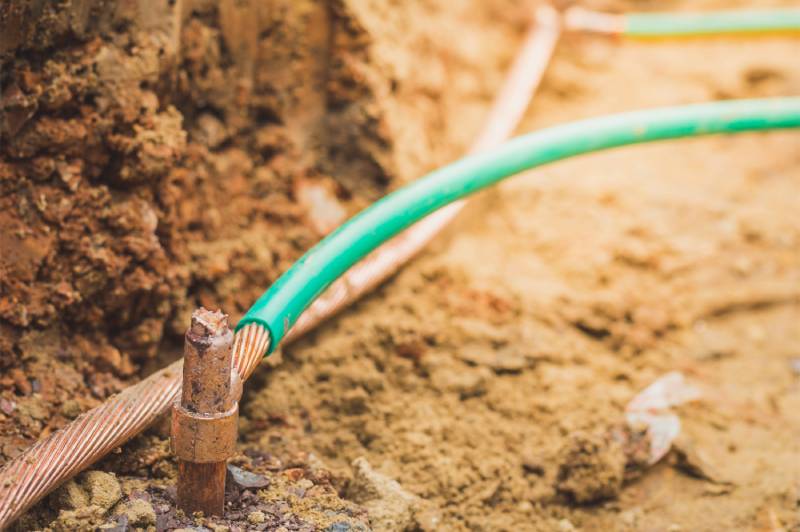
Understanding the Role of Ground Wires in Electrical Safety: Functions, Common Issues, and the Importance of Replacement
Ground wires play a vital role in maintaining electrical safety in your home. While often overlooked, these wires are essential for protecting both people and property from electrical hazards. Understanding their purpose, identifying common problems, and knowing when to replace them can help ensure your home’s electrical system is running safely and efficiently.
What Do Ground Wires Do?
Ground wires provide a direct path for electrical currents to safely travel into the earth in the event of a fault or short circuit. If an appliance malfunctions or a wire becomes exposed, the ground wire directs the excess electrical current away from you, reducing the risk of electrocution or fire. By providing a safe escape route for electrical surges, ground wires also help protect your home’s electrical system and connected devices from damage.
In most modern homes, ground wires are connected to outlets, switches, and electrical panels. These wires are generally made of copper and are easy to recognize by their green insulation or bare appearance. However, not all older homes are equipped with proper grounding systems, which can increase the risk of electrical hazards.
Common Ground Wire Issues
Even though ground wires are designed for safety, problems can arise over time. Here are some common ground wire issues that homeowners may encounter:
- Corrosion: Ground wires, especially those exposed to moisture or outdoor elements, can corrode over time. Corrosion weakens the wire’s ability to conduct electricity, reducing its effectiveness in protecting your home.
- Loose Connections: Ground wires can become loose or disconnected due to wear, improper installation, or vibrations over time. A loose ground wire means that your electrical system is not fully protected.
- Old or Outdated Wiring: In older homes, the electrical systems may not have been built with modern grounding standards. Some may lack ground wires altogether, or the existing ground wires may not meet current electrical codes, leaving you vulnerable to electrical hazards.
- Damaged Ground Wires: Accidental damage during renovations or wear and tear from animals or pests can compromise ground wires, reducing their effectiveness and potentially creating safety issues.
Why You Should Replace Ground Wires
Replacing or upgrading your ground wires is an important part of maintaining electrical safety. Here’s why:
- Enhanced Safety: Properly functioning ground wires protect you from electric shock, fire hazards, and damage to your electrical devices. If your ground wires are corroded, damaged, or loose, replacing them can significantly improve your home’s overall electrical safety.
- Code Compliance: Building codes evolve over time, and electrical systems must comply with the latest safety regulations. If your home’s wiring is outdated or doesn’t meet current grounding requirements, replacing the ground wires ensures compliance and reduces the risk of safety violations.
- Improved System Efficiency: Replacing damaged or outdated ground wires can help improve the efficiency of your electrical system. Faulty wiring can lead to inconsistent electrical flow, causing appliances to malfunction or even fail. Upgrading your ground wires ensures that your system is functioning optimally.
Ground Wire Safety in Albuquerque and Santa Fe
Ensuring your ground wires are in good condition is a key component of maintaining a safe and efficient electrical system. If you suspect issues with your home’s ground wires, our team at Wagner is here to help. Whether it’s inspecting, replacing, or upgrading your ground wires, we’re committed to ensuring the safety and reliability of your electrical system.




.webp)


